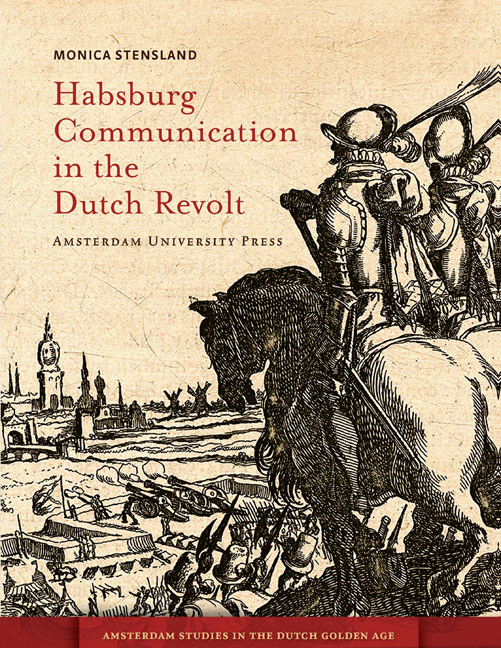Book contents
- Frontmatter
- Dedication
- Contents
- Acknowledgements
- List of Abbreviations
- Notes on References and Translations
- Introduction
- Rooting out Heresy and Rebellion, 1567-1572
- From Rebellion to War, 1572-1576
- The Breakdown of Royal Authority, 1576-1578
- Communicating Reconciliation, 1578-1585
- Losing the Peace, 1585-1595
- A New Beginning, 1596-1609
- Conclusion
- Notes
- Bibliography
- Illustration Credits
- Index
Rooting out Heresy and Rebellion, 1567-1572
Published online by Cambridge University Press: 27 January 2021
- Frontmatter
- Dedication
- Contents
- Acknowledgements
- List of Abbreviations
- Notes on References and Translations
- Introduction
- Rooting out Heresy and Rebellion, 1567-1572
- From Rebellion to War, 1572-1576
- The Breakdown of Royal Authority, 1576-1578
- Communicating Reconciliation, 1578-1585
- Losing the Peace, 1585-1595
- A New Beginning, 1596-1609
- Conclusion
- Notes
- Bibliography
- Illustration Credits
- Index
Summary
The cruelty and tyranny of Fernando Álvarez de Toledo, third Duke of Alva, have become proverbial in the historiography of the Low Countries. From the beginning of his governorship, his name and image came to represent the injustice and tyranny the rebels identified in the Spanish regime. It was the defence of freedom against this Spanish tyranny that from early on was presented as the raison d’être of first the rebel movement and later the Dutch Republic, and Alva was the person who more than anyone personified what the freedom-loving Dutch had been up against. The allegations of cruelty were so serious and with such international reach that almost 60 years after Alva's death, the Count of Roca, his panegyrist, felt a need to justify the tremendous hatred the ‘iron duke’ had provoked. His explanation was that Alva had actually performed an act of self-sacrifice: by willingly increasing people's hatred of himself, he was hoping to boost their loyalty and devotion to Philip II, once the king himself returned to the Low Countries. Although there is no evidence that Alva was deliberately intent on increasing the hatred he inspired, the Count of Roca's comments do point to the two-part Habsburg strategy, namely the harsh policies of Alva and the intended return of Philip II.
The 1560s had been marked by both political and religious tension in the Low Countries. In the years after Philip's departure for Spain in 1559, the highest-ranking nobles objected to what they perceived as attempts to squeeze them out of government in favour of Spanish advisors. The strict heresy laws that Philip had inherited from Charles V, and which he confirmed upon his own accession, became a focal point for political and religious discontent both among the grandees and at the local level. As a group, the grandees were religious moderates, although few adhered personally to Protestantism. In addition to a general antipathy towards religious persecution, they were also concerned about the economic effects of the strict heresy laws (much trade relied on close contact with the neighbouring heretical states), the possibilities for unrest, as well as the undesirable interference with local privileges that full compliance with the placards entailed.
- Type
- Chapter
- Information
- Habsburg Communication in the Dutch Revolt , pp. 27 - 54Publisher: Amsterdam University PressPrint publication year: 2012



